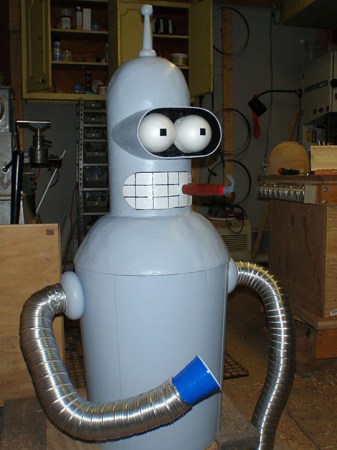
This impressive little mod is quite fantastic really. [pakkei] has constructed the Harlequin, a home-made version of the Microsoft courier. This was a stock Dell mini9. Now, coupled with a display link touch screen monitor that happens to be identical in size and resolution to the original, it has become a new device. He has loaded Windows7 and is currently working on a case that can hold all the bits a little more organized than what you see above. We can’t wait to see this finished.
[via engadget]













